
Ultimac P 100mg/325mg Tablet
Manufacturer
Macwell Pharmaceuticals
Salt Composition
Aceclofenac (100mg) + Paracetamol (325mg)
Key Information
Short Description
Ultimac P 100mg/325mg Tablet is a pain-relieving medicine used to reduce pain and inflammation in conditions like rheumatoid arthritis, ankylosing spondylitis, and osteoarthritis.
Dosage Form
Tablet
Introduction
Ultimac P 100mg/325mg Tablet is a combination of two medicines: Aceclofenac and Paracetamol. These medicines work by blocking the action of chemical messengers responsible for pain, fever, and inflammation (redness and swelling).
Directions for Use
Take this medicine in the dose and duration as advised by your doctor.Swallow it as a whole. Do not chew, crush, or break it.Ultimac P 100mg/325mg Tablet may be taken with or without food, but it is better to take it at a fixed time
How it works
Ultimac P 100mg/325mg Tablet is a combination of two medicines: Aceclofenac and Paracetamol. These medicines work by blocking the action of chemical messengers responsible for pain, fever, and inflammation (redness and swelling)
Quick Tips
Take Ultimac P 100mg/325mg Tablet with food to avoid getting an upset stomach Do not take Ultimac P 100mg/325mg Tablet with any other medicine containing paracetamol without asking your doctor first May cause dizziness and sleepiness. Do not drive or do anything that requires mental focus until you know how it affects you Consume alcohol with caution as it may cause excessive drowsiness and increase the risk of liver damage Inform your doctor if you have a history of stomach ulcers before taking this medicine
Related Medicines
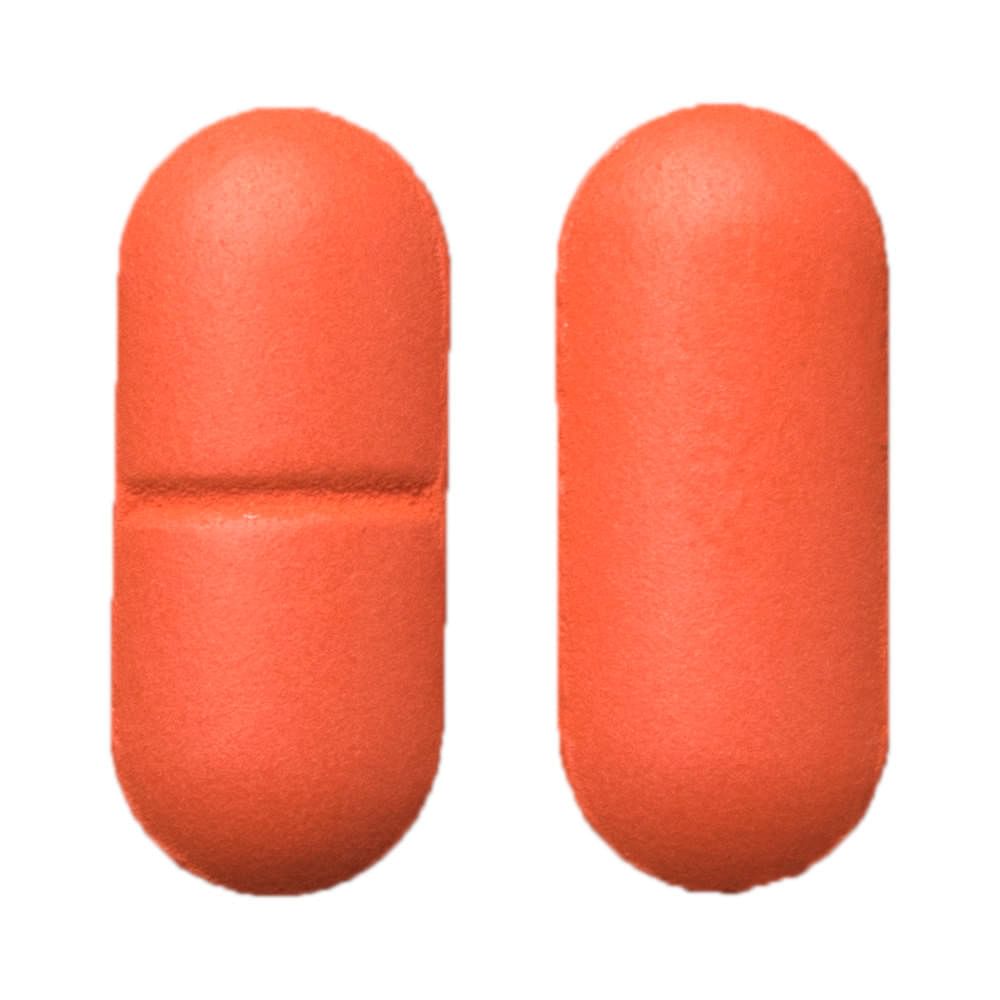
Aceclo Plus Tablet
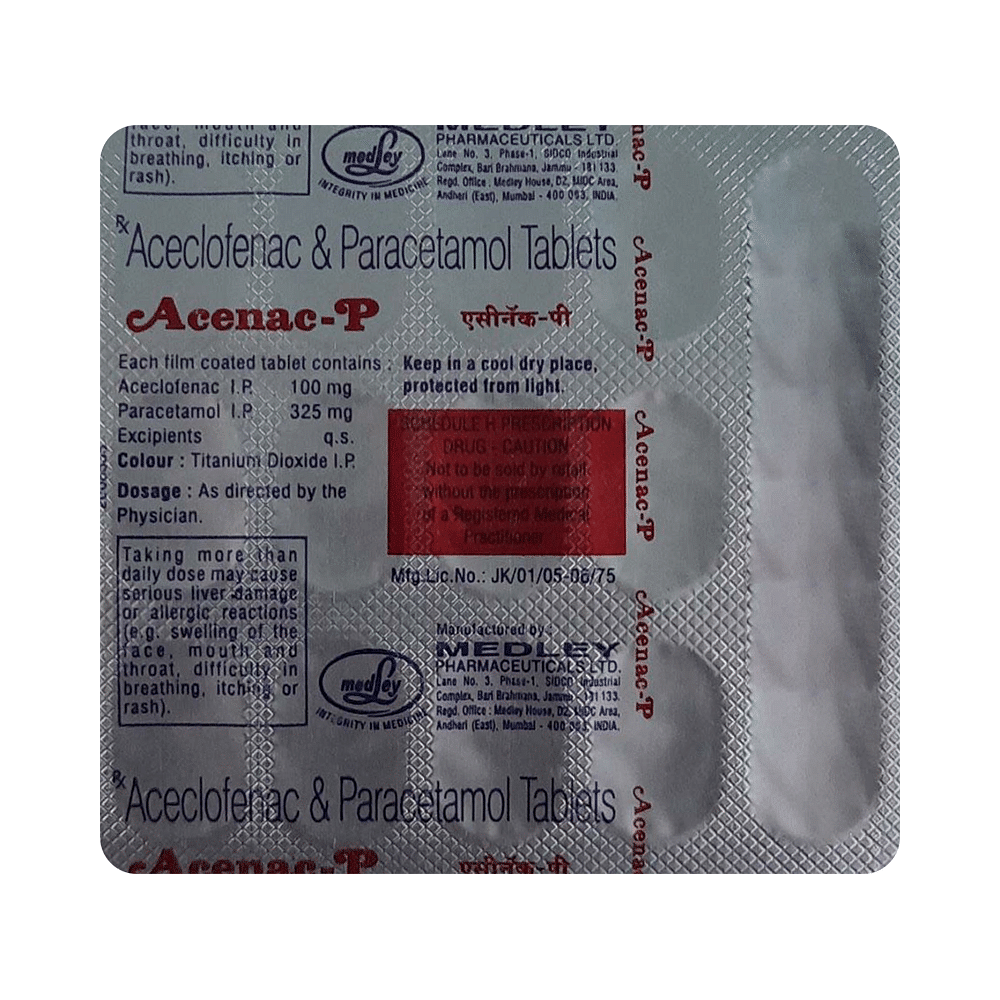
Acenac-P Tablet

Acezine-Plus Tablet
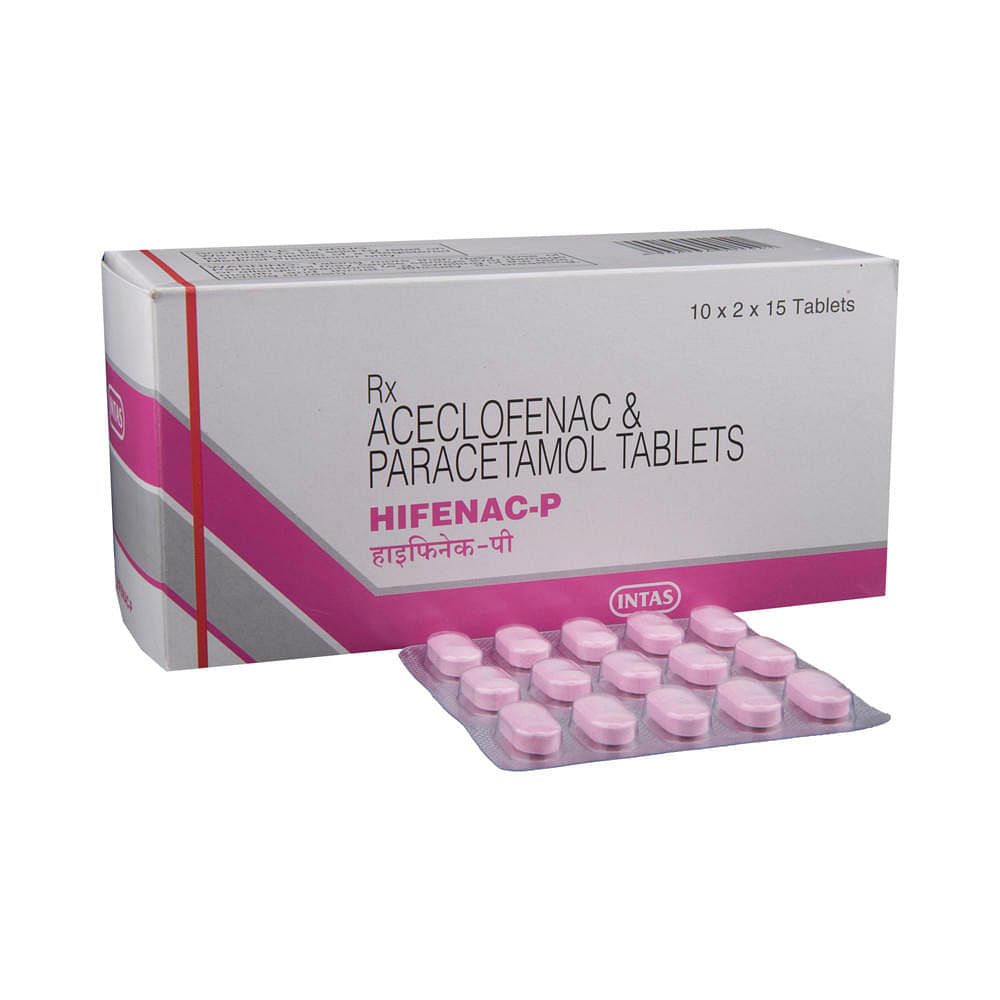
Hifenac-P Tablet
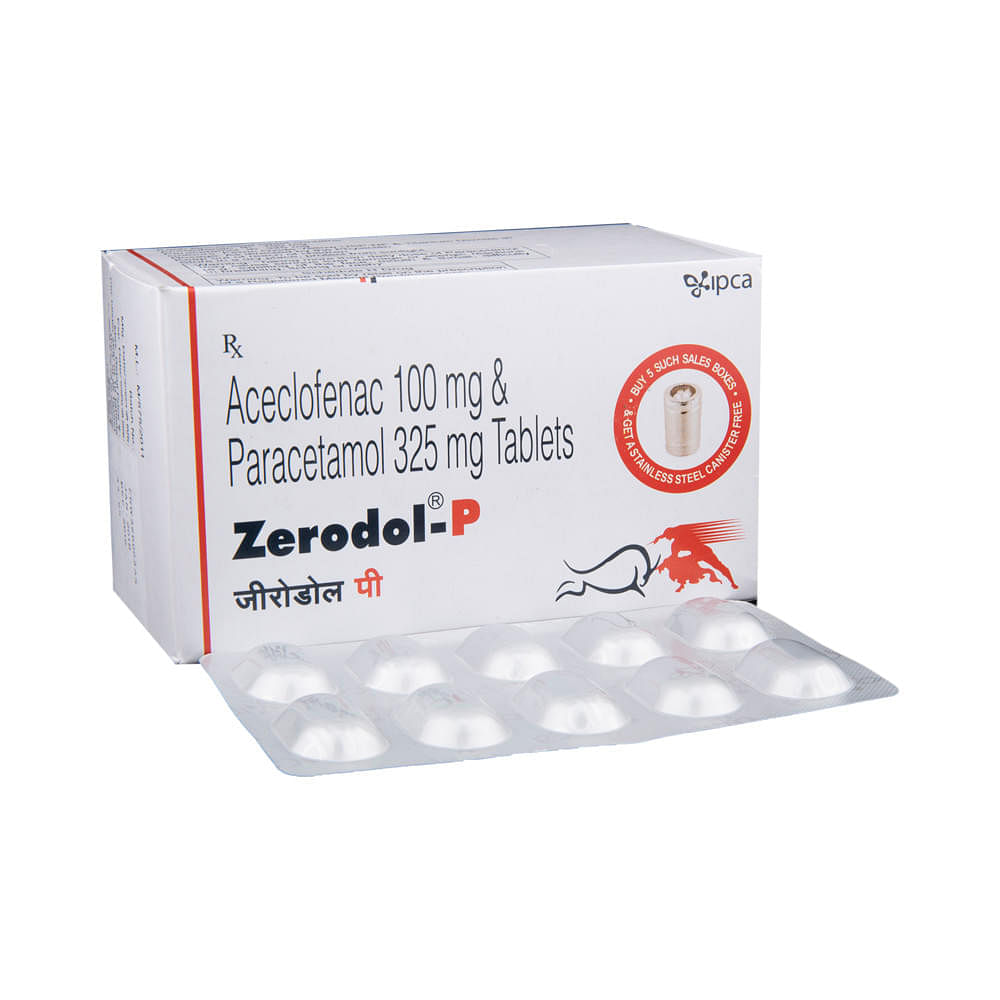
Zerodol-P Tablet
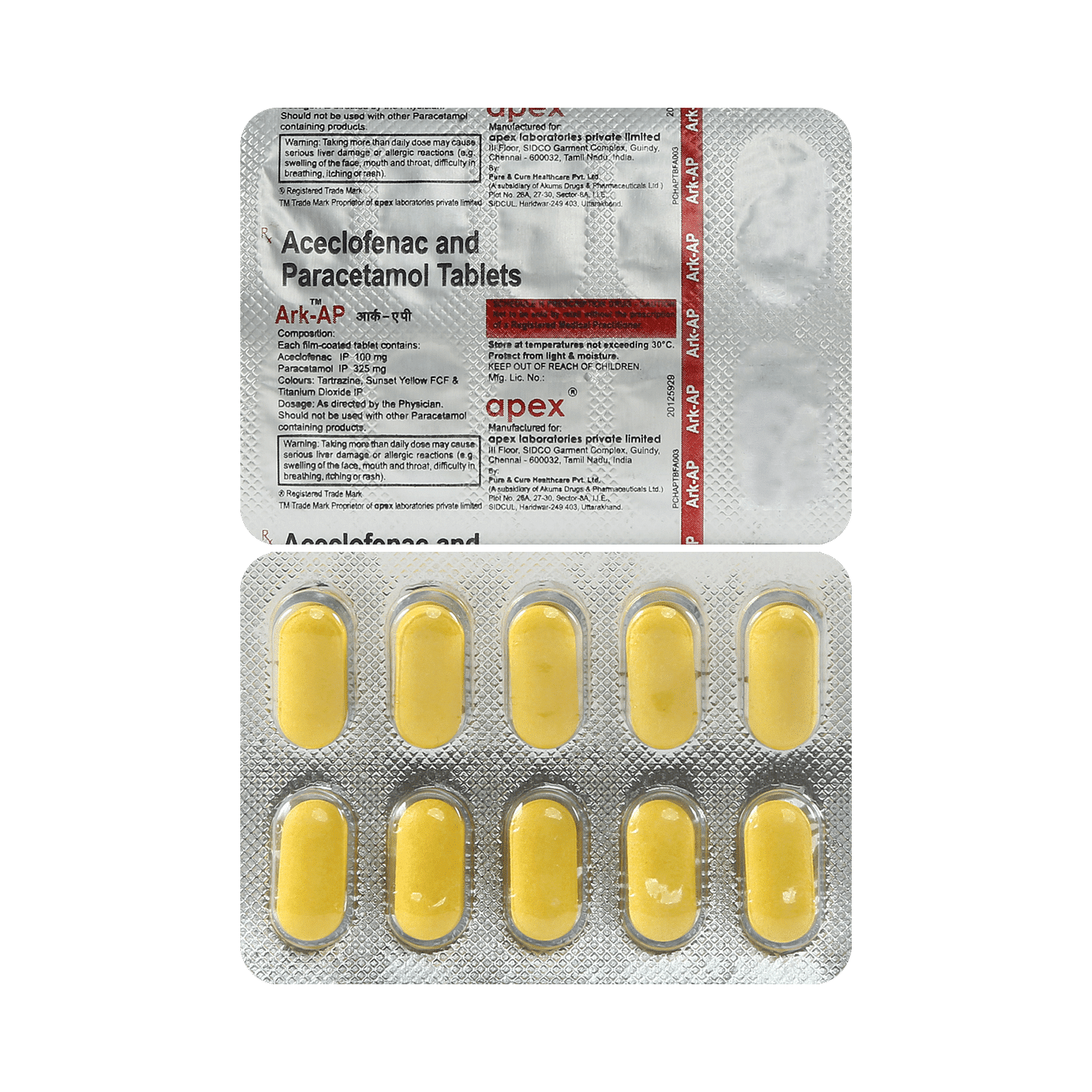
Ark-AP Tablet
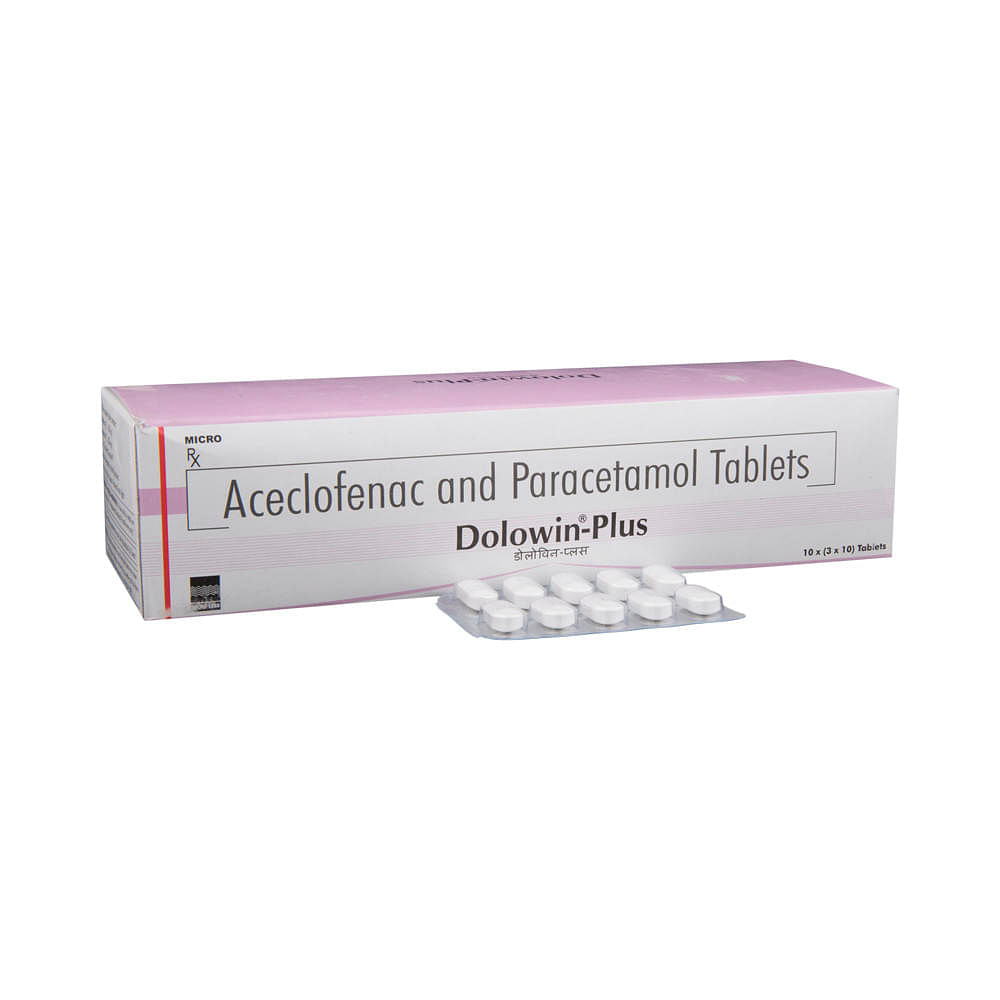
Dolowin-Plus Tablet

Zerodol TC 100mg/325mg Tablet
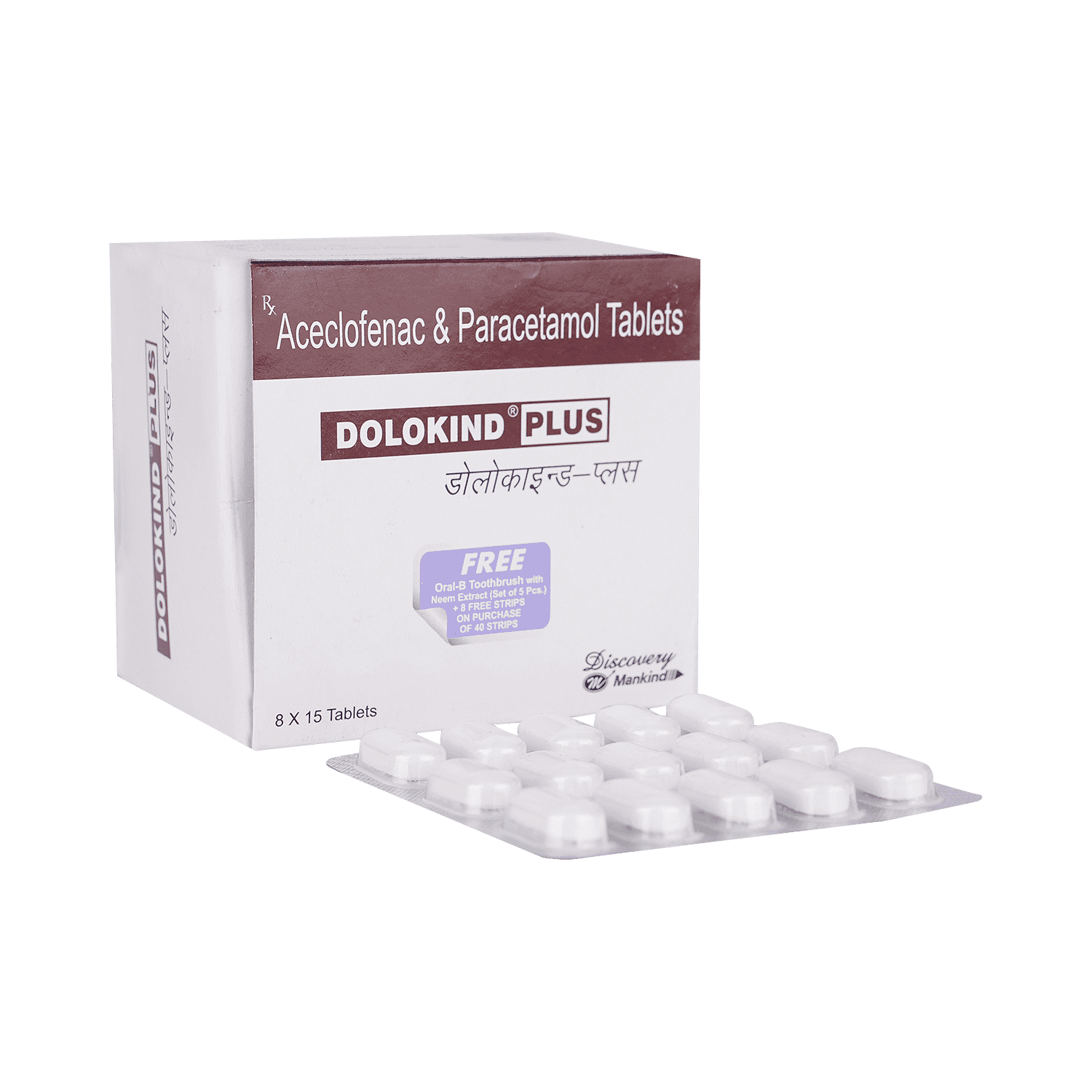
Dolokind Plus Tablet
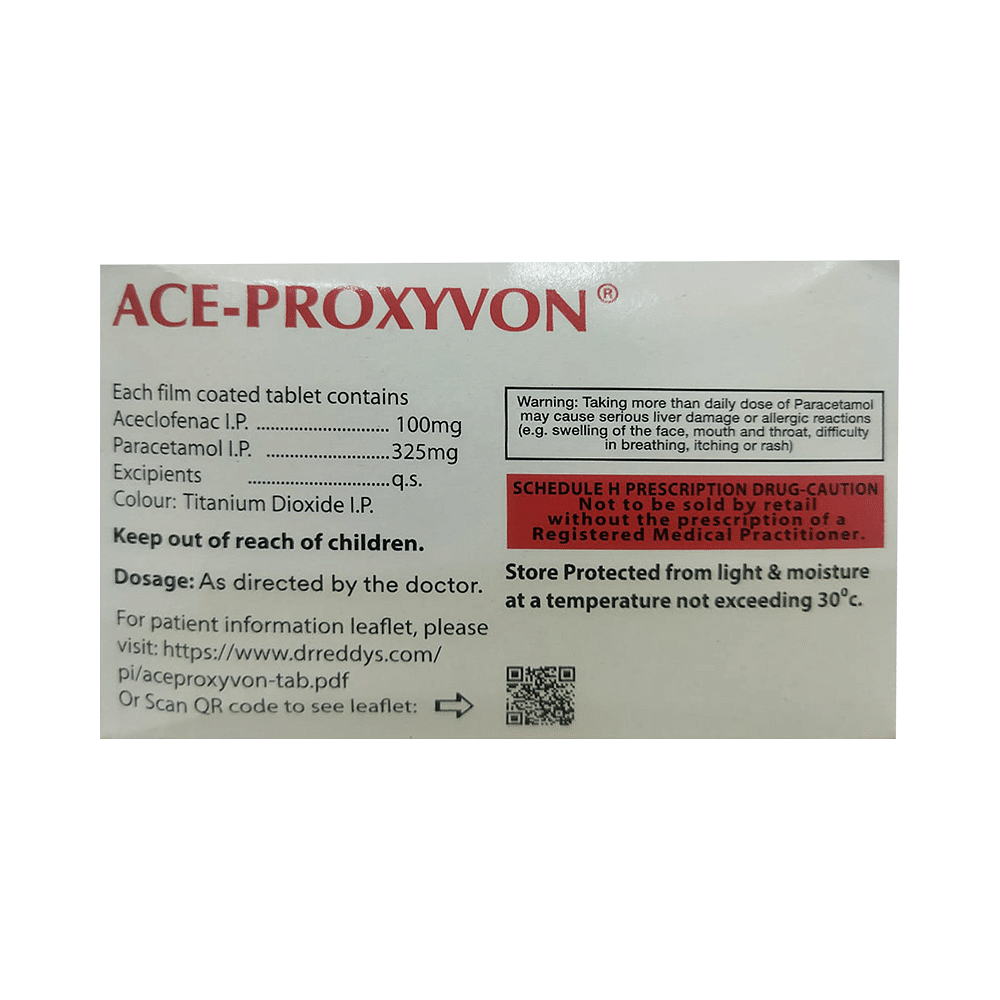
Ace-Proxyvon Tablet
Frequently asked questions
What is Ultimac P 100mg/325mg Tablet?
Ultimac P 100mg/325mg Tablet is a combination of two medicines: Aceclofenac and Paracetamol. This medication helps in relieving pain and inflammation by lowering the levels of chemical substances in the body that cause pain and inflammation. It is essential to consult a doctor before taking this medication to ensure it is safe for your specific condition.
Is it safe to use Ultimac P 100mg/325mg Tablet?
Ultimac P 100mg/325mg Tablet is generally considered safe for most patients. However, it may cause some common side effects like nausea, vomiting, stomach pain, heartburn, diarrhea, and other uncommon and rare side effects. If you experience any side effects, consult your doctor for guidance.
Can I stop taking Ultimac P 100mg/325mg Tablet when my pain is relieved?
If you are using Ultimac P 100mg/325mg Tablet for a condition associated with long-term pain, it is essential to continue taking the medication as advised by your physician. If you are using it for short-term pain relief, you can discontinue it once your pain is relieved. However, it is crucial to consult your doctor before stopping the medication.
Can the use of Ultimac P 100mg/325mg Tablet cause nausea and vomiting?
Yes, the use of Ultimac P 100mg/325mg Tablet can cause nausea and vomiting. To minimize these side effects, take the medication with milk, food, or antacids. Avoid consuming fatty or fried foods with this medication. If you experience persistent vomiting, drink plenty of water or other fluids by taking small frequent sips. Consult your doctor if you notice signs of dehydration, such as dark-colored and strong-smelling urine and a low frequency of urination. Do not take any other medication without consulting your doctor.
Can the use of Ultimac P 100mg/325mg Tablet cause dizziness?
Yes, the use of Ultimac P 100mg/325mg Tablet can cause dizziness (feeling faint, weak, unsteady, or lightheaded) in some patients. If you experience dizziness, it is recommended to rest for some time and resume the medication once you feel better. Consult your doctor if the dizziness persists.
Are there any specific contraindications associated with the use of Ultimac P 100mg/325mg Tablet?
The use of Ultimac P 100mg/325mg Tablet is contraindicated in patients with known allergy to any of the components or excipients of this medicine or in patients with known allergy to other painkillers (NSAIDs). It is also recommended to avoid this medication in patients with a history of stomach ulcers, heart failure, high blood pressure, and liver or kidney disease. Consult your doctor before taking this medication if you have any of these conditions.
Can Ultimac P 100mg/325mg Tablet be taken with vitamin B-complex?
Yes, Ultimac P 100mg/325mg Tablet can be taken with vitamin B-complex preparations. While Ultimac P 100mg/325mg Tablet helps to relieve pain, vitamin B-complex can help to correct the vitamin deficiency that might be causing the underlying painful condition. However, it is essential to consult your doctor before taking any supplements with this medication.
Is Ultimac P 100mg/325mg Tablet helpful in relieving stomach pain?
No, Ultimac P 100mg/325mg Tablet should not be taken for stomach pain without consulting a physician. This medication can increase stomach acid secretion, which may aggravate an unknown underlying condition. Consult your doctor for proper diagnosis and treatment of stomach pain.
Can the use of Ultimac P 100mg/325mg Tablet cause damage to kidneys?
Yes, the long-term use of Ultimac P 100mg/325mg Tablet can cause damage to the kidneys. Normal kidneys produce a chemical messenger called prostaglandins that protects them from damage. Use of painkillers lowers the levels of prostaglandins in the body, which leads to kidney damage on long-term use. Use of painkillers is not recommended for patients with underlying kidney disease. Consult your doctor before taking this medication if you have any kidney issues.
Is it safe to take a higher dose of Ultimac P 100mg/325mg Tablet than recommended?
No, taking higher than the recommended dose of Ultimac P 100mg/325mg Tablet can lead to increased chances of side effects like nausea, vomiting, heartburn, indigestion, diarrhea, and can also damage your kidneys on long-term use. If you are experiencing increased severity of pain or if the pain is not relieved by the recommended doses of this medicine, please consult your doctor for re-evaluation.
What are the instructions for storage and disposal of Ultimac P 100mg/325mg Tablet?
Keep this medicine in the container or the pack it came in, tightly closed. Store it according to the instructions mentioned on the pack or label. Dispose of the unused medicine. Make sure it is not consumed by pets, children, and other people.
How long does it take for Ultimac P 100mg/325mg Tablet to show results?
The effect of Ultimac P 100mg/325mg Tablet can be seen within 1.5 to 3 hours of oral administration of the medicine, and the time taken to show the desired effects may vary with every individual patient.
What is the dosage of Ultimac P 100mg/325mg Tablet?
You may take one tablet of Ultimac P 100mg/325mg Tablet twice daily or as prescribed by your doctor. Always follow your doctor's instructions while taking this medicine.
Can I take Ultimac P 100mg/325mg Tablet along with other painkiller tablets?
No, it is not recommended to take Ultimac P 100mg/325mg Tablet with other painkiller medicines without consulting your doctor since it may cause unwanted side effects like stomach pain or ulcers.
Can Ultimac P 100mg/325mg Tablet be given to children?
No, Ultimac P 100mg/325mg Tablet is not recommended for use in children under the age of 18 years. Consult your doctor for proper treatment options for children.


